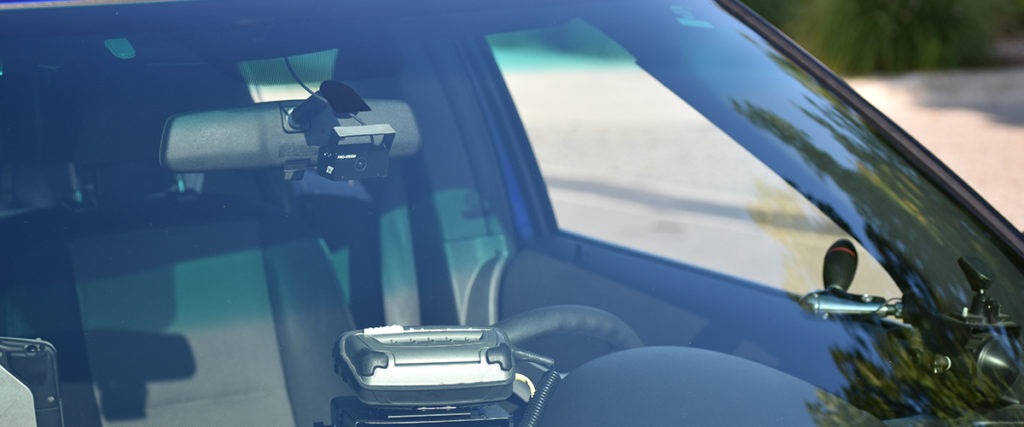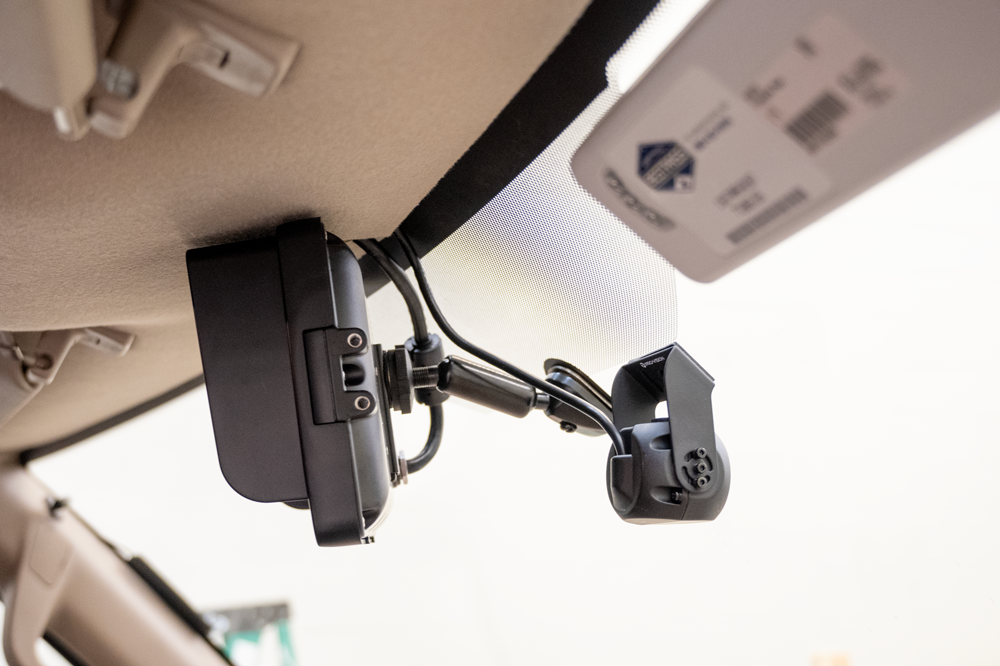How Far Can Police Car Cameras See?

Enhancing Law Enforcement with Video Technology
When it comes to law enforcement, having reliable and high-quality video evidence is crucial. Patrol car cameras, also known as in-car video systems or dash cams, play a vital role in capturing critical evidence and ensuring transparency. These cameras not only help agencies comply with evolving public demands for accountability but also provide valuable tools for officer training and performance evaluation. One common question that arises is, “How far can police car cameras see?” In this article, we’ll explore the capabilities of these cameras and how Pro-Vision’s video technology solutions can enhance law enforcement efforts.
The Range of Police Car Cameras
The distance at which a forward facing police car camera can effectively capture video depends on several factors, such as the camera’s resolution, lens quality, and environmental conditions. Generally, most modern police car cameras can provide clear footage from a distance of 20 to 30 feet, with some high-end models extending their range up to 100 feet or more. However, it’s essential to note that the clarity and detail of the video may diminish as the distance increases.
Factors like lighting conditions, weather, and the speed of the vehicles involved can also impact the quality of the footage. Advanced patrol car camera systems, such as those offered by Pro-Vision, often feature wide-angle lenses and high-resolution sensors that can capture a broader field of view and more detail, even in challenging lighting conditions. This enhanced capability ensures that critical evidence is captured, regardless of the situation.
Rear seat, side, and rear-facing cameras are occasionally used to provide a full 360 degree coverage in and around the patrol vehicle. Due to the dominance of SUVs over traditional sedans, high-center mounted side cameras will only see anywhere from 20-40 feet from the vehicle as they are pointed downward to ensure any critical incidents occurring next to the vehicle are captured.
The Importance of High-Quality Police Car Cameras
Investing in high-quality police car cameras is crucial for law enforcement agencies. These cameras serve multiple purposes, including:
- Evidence collection: Clear and detailed video footage can be invaluable in court proceedings, helping to establish facts and support cases. High-quality video evidence can also help to reduce disputes and provide a more accurate account of events.
- Officer safety: In-car cameras can document interactions between officers and the public, providing an objective record of events and protecting officers from false accusations. This transparency can help to build trust between law enforcement and the community.
- Training and performance evaluation: Video footage can be used to review and improve officer performance, identify areas for additional training, and promote best practices. By analyzing real-world scenarios, agencies can better prepare their officers for the challenges they may face on the job.
- Automated Recording: Unlike body-worn cameras, patrol car cameras typically record all the time. That means there is no possibility of the camera accidentally being left powered off during a critical event.

Pro-Vision: Enhancing Law Enforcement with Cutting-Edge Video Technology
At Pro-Vision, we understand the unique challenges faced by law enforcement agencies and the importance of reliable, high-quality video evidence. Our state-of-the-art police car cameras and video management solutions are designed to meet the demanding needs of modern law enforcement.
Our cameras offer exceptional image quality, wide-angle views, and low-light performance, ensuring that you can capture clear and detailed footage in various situations. Our cameras provide valuable data that can help streamline investigations and improve overall efficiency.
Moreover, our user-friendly video management software makes it easy to store, organize, and retrieve video evidence when needed. With secure cloud storage and advanced search capabilities, you can quickly access the footage you need.
Request a Demo to see how Pro-Vision’s video technology solutions can help your agency enhance safety, transparency, and efficiency.
FAQs
How do police car cameras work?
Police car cameras are typically mounted on the dashboard or windshield of the patrol vehicle – there are also side and rear-facing camera options. They are connected to a digital video recorder (DVR) that stores the footage. The cameras are automatically activated when the officer turns on the emergency lights or manually triggered by the officer when needed.
Are police car cameras always recording?
It depends, some patrol car cameras are not always recording and others are. Some are usually set up to start recording when the officer activates the emergency lights or manually turns on the camera. This helps conserve storage space and ensures that only relevant footage is captured. However, many cameras record from ignition until vehicle turnoff.
Can police car cameras record audio?
Yes, most modern police car cameras are equipped with microphones that can record audio along with the video footage. This feature is particularly useful for capturing conversations between officers and the public during traffic stops or other interactions. It can also be particularly important with the rear-seat cameras where an arrested individual may reveal incriminating testimony while en route to jail.
How long is footage from police car cameras stored?
The duration for which video footage is stored varies depending on the agency’s policies and local regulations. Some agencies may keep footage for a few weeks, while others may store it for several months or even years. Factors like storage capacity, the nature of the incidents captured, and the policies of the state or agency also play a role in determining retention periods.